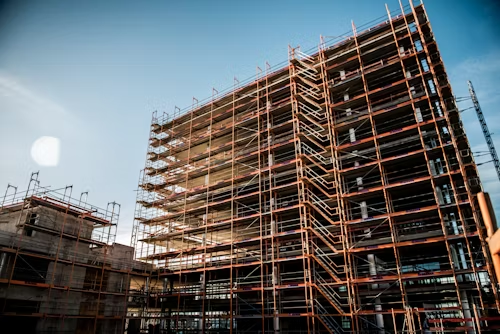
SACRAMENTO, Calif. — California Governor Gavin Newsom signed Senate Bill 61 into law on July 14, 2025, introducing a 5% cap on retention for private construction projects, a major policy shift aimed at improving cash flow and fairness for contractors and subcontractors. The new law, codified as Civil Code section 8811, takes effect January 1, 2026, and applies to contracts executed on or after that date.

“This law brings private project retention limits in line with public works standards that have existed since 2012,” experts say. Contractors and subcontractors across California are now reviewing how the law will impact their agreements, particularly regarding multi-tier contracts and subcontract flow-down provisions.
Contracts entered into on or after January 1, 2026 will be subject to the 5% retention cap. Existing contracts signed prior to this date are not affected.
The law applies to owners, prime contractors, and all subcontractors, ensuring consistency throughout the project hierarchy.
Join Silicon Valley's construction elite at CO Summit Santa Clara – network, discover AI innovations, and explore high-impact sponsorship opportunities. | Sign up
Retention on any progress payment may not exceed 5% of that payment, and total retention under a contract cannot exceed 5% of the contract price.
Retention limits on subcontracts cannot exceed the percentage established in the prime contract. This ensures any negotiated reductions under the prime contract are passed to all subcontract tiers.

The 5% cap does not apply to residential projects that are not mixed-use and are four stories or less. Because “residential” and “mixed-use” are not explicitly defined, some projects may face interpretive questions.
The cap does not apply when a subcontractor fails to provide required performance or payment bonds after notification, although this exception does not apply to prime contracts with the owner.
Non-Waivable
Civil Code section 8811 protections cannot be waived, as per Civil Code section 8820, ensuring that all contractual attempts to bypass retention limits are void.
Attorneys’ Fees: The prevailing party in enforcement actions is entitled to mandatory attorneys’ fees, providing a strong incentive to comply with the law.
Developers and contractors are advised to:
Industry leaders note that the law is expected to improve liquidity for subcontractors, reduce financial strain on small businesses, and streamline project payment flows while maintaining protections against non-performance.
“This is a transformative moment for California’s construction industry,” said a leading construction law expert. “Senate Bill 61 balances the need for project security with fairness for contractors and subcontractors, and it will require careful planning to implement effectively.”
Developers, contractors, and legal advisors are encouraged to begin early compliance planning to ensure a smooth transition when the January 1, 2026 effective date arrives.
Originally reported by JD Supra.